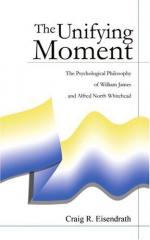|
This section contains 6,692 words (approx. 23 pages at 300 words per page) |

|
SOURCE: “The Philosophy of Whitehead,” in The Philosophy of Alfred North Whitehead, Northwestern University, 1941, pp. 643-61.
In the following essay, Dewey explicates the fundamental structure of Whitehead's philosophy of experience.
I
It was long the fashion for philosophers to base their doctrines upon what each one happened to regard as “first principles,” the latter being “premises” in their capacity of coming logically first. When the principles were regarded, under the influence of Aristotelianism, as axioms or self-evident truths, apart from which there was no demonstration of other truths (and without demonstration no “science”), they seemed to descend directly via pure intellect, out of the ether of reason, situated next to God or perhaps in his own intrinsic abode. Even if there were some special occasion in virtue of which they were humanly noted, there was nothing beyond them or outside of them from which, as truths, they arose...
|
This section contains 6,692 words (approx. 23 pages at 300 words per page) |

|


